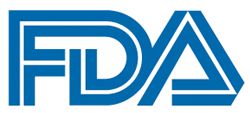Tazemetostat Receives FDA Priority Review for Metastatic or Locally Advanced Epithelioid Sarcoma
A new drug application for tazemetostat, an EZH2 inhibitor, has been granted a priority review by the FDA for the treatment of patients with metastatic or locally advanced epithelioid sarcoma not eligible for curative surgery based on data from the epithelioid sarcoma cohort of a phase II trial.

A new drug application (NDA) for tazemetostat, an EZH2 inhibitor, has been granted a priority review by the FDA for the treatment of patients with metastatic or locally advanced epithelioid sarcoma not eligible for curative surgery based on data from the epithelioid sarcoma cohort of a phase II trial (NCT02601950), according to Epizyme, the manufacturer of the drug.
These data, presented at the 2019 ASCO Annual Meeting demonstrated that among 62 patients with epithelioid sarcoma, the overall response rate was 15% (n = 9), comprised of all confirmed partial responses.
At a median follow-up of 59.9 weeks, the median duration of response was not reached. The median overall survival among all 62 patients was 82.4 weeks (95% CI, 47.4 to not estimable). The median progression-free survival was 23.7 weeks (95% CI, 14.7-25.7).
“We are thrilled with FDA’s acceptance of this first tazemetostat NDA submission for priority review, and to be an important step closer to achieving our mission of rewriting treatment for patients with cancer and other serious diseases,” said Robert Bazemore, president and chief executive officer of Epizyme.
“This is a significant achievement in the development of this potentially first-in-class EZH2 inhibitor, and we look forward to working with FDA during the review. If approved, we believe tazemetostat could become an important new option in the treating physicians’ arsenal. We would like to extend our sincerest gratitude to those patients, families and medical teams who have participated in our clinical studies and helped bring tazemetostat to this stage,” added Bazemore.
At the data cutoff of September 17, 2018, the multicenter, open-label phase II trial enrolled 62 patients with locally advanced or metastatic epithelioid sarcoma whose tumors lacked INI expression. A lack of INI expression enables the epigenetic modifier EZH2 to act as an oncogenic driver in tumors cells. By targeting EZH2, Epizyme has the potential to block this process.
Patients had received a median of 1 (range, 0-9) prior line of therapy. Tazemetostat was administered at 800 mg twice daily.
The most common all-grade adverse events (AEs; ≥10%) were fatigue (39%), nausea (35%), and cancer pain (32%). Grade ≥3 treatment-emergent AEs (TEAEs) occurred in 16% (n = 10) of patients. Grade ≥3 TEAEs reported in at least 2 patients were anemia (6%) and decreased weight (3%). The rate of treatment discontinuation was 1.7%, and there were no deaths related to tazemetostat treatment.
Reference:
Stacchiotti S, Schoffski P, Jones R, et al. Safety and efficacy of tazemetostat, a first-in-class EZH2 inhibitor, in patients (pts) with epithelioid sarcoma (ES) (NCT02601950).J Clin Oncol. 2019;37(suppl; abstr 11003).